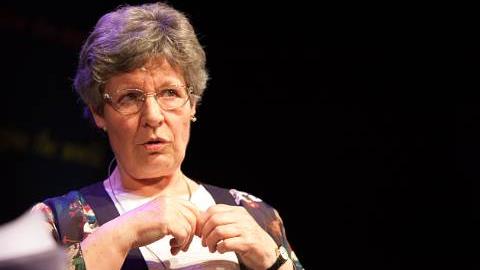
Can science and religion ever be bedfellows? According to astrophysicist Jocelyn Bell Burnell, the answer is yes. The prolific Northern Irish scientist – best known for her discovery of pulsars in 1967 - spoke to Rosie Boycott about her scientific discoveries and her Quaker faith in equal measure.
Bell Burnell discussed her aptitude for physics at a young age, which led her to pursue a degree at the University of Glasgow. She specialised in astrophysics at Cambridge, where her work on pulsars won a Nobel Prize, although being a research student the award was not given directly to her.
As a prominent thinker in a field where women are still profoundly under-represented, she noted the disparities between countries in the distribution of female astrophysicists, in some cases due to cultural factors, “not women’s brains”. When asked about young women pursuing physics in school, she remarked, “Kids turn up at primary schools already gendered. The solution, she suggested, would be to have more female teachers of science and physics in schools.
On her Quaker upbringing, Bell Burnell spoke of growing up in a community which was “very scared of science because it threatened the Bible", but studying at boarding school in England shaped her ability to balance science and Quakerism. Physics took centre stage, however, as she argued the Quaker belief “has changed shape to fit around the science”, describing it as evolving and reviving as time goes on. Burnell still regularly attends Quaker meetings and worship every Sunday
If you missed this, you might enjoy event 304: Paul Murdin, Universe: Exploring the Astronomical World, on Thursday 31 May at 8.30pm.